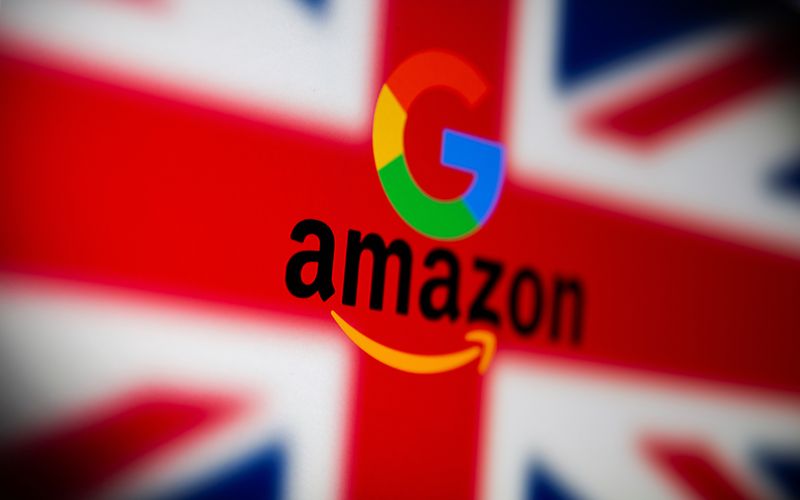LONDON (Reuters) - Britain said on Tuesday it would introduce a new law to rein in the power that big tech companies such as Google (NASDAQ:GOOGL), Facebook (NASDAQ:META) and Amazon (NASDAQ:AMZN) are able to wield to stifle competition in digital markets.
The legislation will also bolster protection for consumers by making it easier to opt out of online subscriptions and by making it easier to tackle fake reviews, the government said.
Britain's antitrust watchdog, the Competition and Markets Authority (CMA), set up a dedicated Digital Markets Unit two years ago, armed with the expertise to regulate new markets, such as social media.
But it has lacked the legal "teeth" to underpin its remit.
The bill, once passed by parliament, will rectify that by giving the DMU new powers over tech companies that have a global turnover of more 25 billion pounds ($31.2 billion) or a British turnover above 1 billion pounds.
The European Union last year brought in its own law to tackle big tech's dominance, despite fierce opposition from Google, Apple (NASDAQ:AAPL) and others.
Under the planned British law, the CMA will be able to tailor rules for tech companies that meet it threshold to stop them unfairly disadvantaging smaller businesses and consumers.
For example, they could be told to provide more choice and transparency to customers, the government said.
If they breach the rules, they could be fined up to 10% of global turnover, it said.
CMA chief executive Sarah Cardell said the bill had the potential to be a "watershed moment" in protecting consumers and ensuring digital markets worked for the British economy.

"Digital markets offer huge benefits, but only if competition enables businesses of all shapes and sizes the opportunity to succeed," she said. "This bill is a legal framework fit for the digital age."
($1 = 0.8022 pounds)